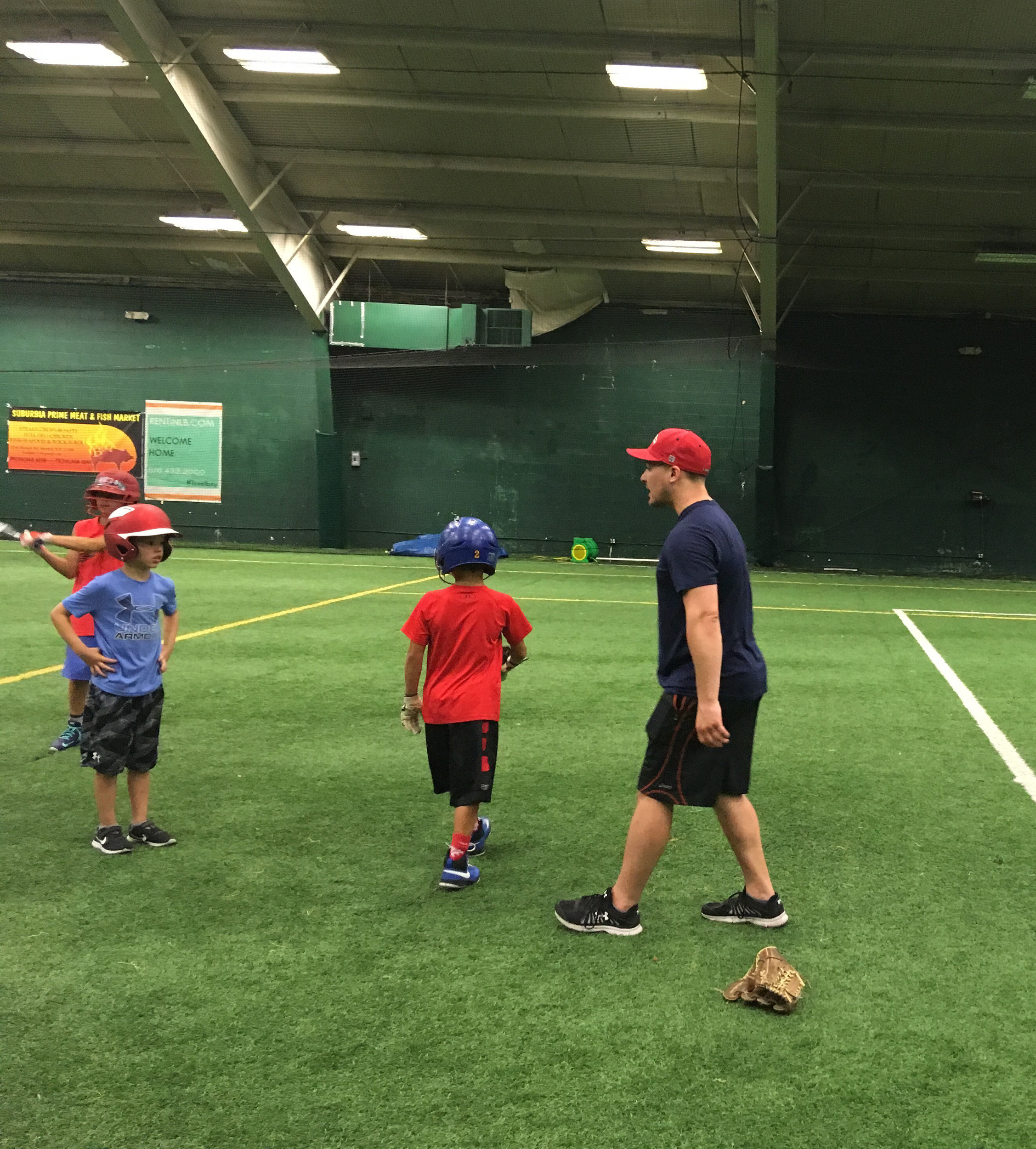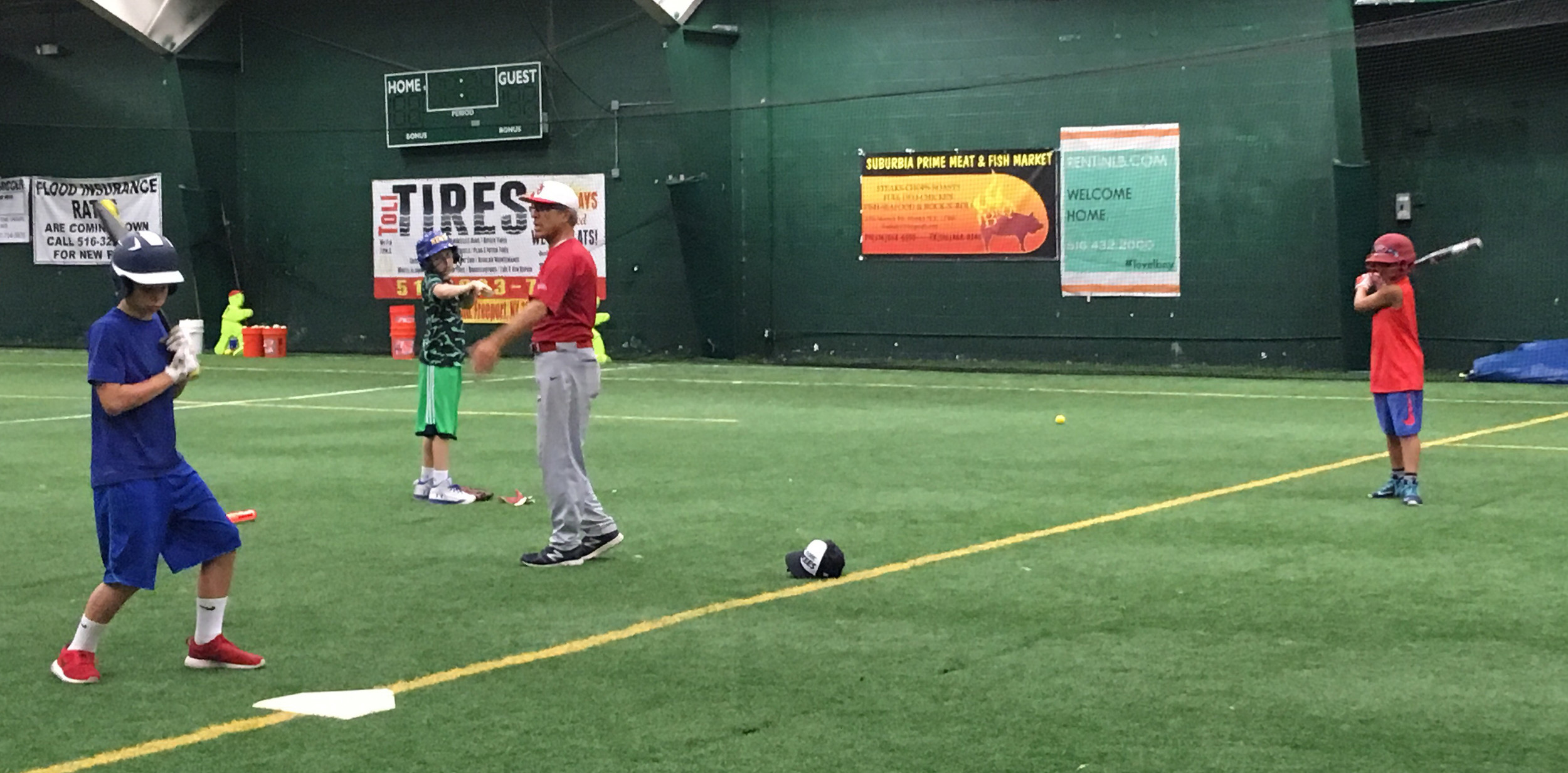Two weeks of baseball fundamentals for Freeport children
Loud popping sounds echoed throughout the indoor field at the Long Island Sports Complex off Mill Road in Freeport. School aged children, ages six through 12, practiced hitting baseballs at the Steve Scafa Baseball Camp — a two-week program.
The camp is designed to teach children the fundamentals of the game of baseball. During each three-hour session, campers participated in baseball drills to equip them with skills to apply to baseball games outside of camp. It was during drills that coaches used positive reinforcement as a coaching tactic to motivate the children. A methodology Coach Steve Scafa, who designed the camp, began to apply with baseball in an effort to motivate campers to work on their weaknesses, improve their baseball skills and maintain the improved skills. Understanding their daily goals and expectations, the campers dedicated hours at camp to improve on sportsmanship and baseball skills.
By using positive reinforcement, as a coaching technique, Scafa said he believes the campers will benefit through lessons they learn at camp and use them later in their lives. During the trainings the campers learned how to handle competition and teamwork through drills like the “best buddy drill.” The drill involved placing a dummy behind the home plate and asking the kids to pretend that it is their best friend. The point of the drills is to teach the campers how to keep the ball from hitting the dummy by taking a small swing and using the thicker part of the bat to protect the dummy — the skill helps the players to not swing wide and improve on their batting stance.
After drills, Scafa divided the campers into groups of five and held friendly competitions in catching and hitting baseballs. The winners were awarded snacks, like potato chips, pretzels and drinks, or prizes, like baseballs, bobble heads, posters, baseball related backpacks, and sport related toys.
“I always tell the kids that I don’t give any prizes away unless they earn it,” said Scafa. “If the kids cry because they want a snack that they didn’t earn, I tell them, ‘I’m sorry, but you have to earn it.”
Campers were seen racing across the indoor field, repetitively, to practice following the ball and adjusting their bodies to meet the ball from different angles to prepare them for baseball games outside of camp. After training hard for the day, the campers are excited to collect their rewards and snacks for another successful day of playing the game they are working hard to master.
“My camp is different from most baseball camps because I don’t punish my campers by making them do push-ups if they miss a fly ball,” said Scafa. “I use positive reinforcement to coach, by rewarding campers with snacks and prizes after they reach goals or if they make an extraordinary hit or throw.”

 49.0°,
Fair
49.0°,
Fair 







